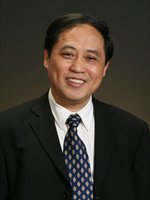Wenzhou reforms can electrify finance sector


Editor's Note:
China has recently announced a pilot financial reform program in Wenzhou, Zhejiang Province, in the wake of rising financial disputes and crimes associated with private financing in the city. The move has been hailed as a vital step to break banking monopolies and make it easier for small and medium-sized enterprises (SMEs) to raise funds. Nevertheless, some voiced that it's not necessarily a road of flowers. Are the worries necessary? What are challenges ahead? Global Times (GT) reporter Huang Jingjing interviewed Wang Wei (Wang), managing director of Academy of Financial Research, Zhejiang University, and Yi Xianrong (Yi), researcher from Institute of Finance and Banking, Chinese Academy of Social Sciences, on these issues.
GT: Some said the latest measures unveiled are not sufficient to solve the problems in Wenzhou. What's your view?
Yi: The effects of the reform are still hard to see. Its success will largely depend on the supportive measures carried out next and the enforcement of the policies.
In some cities like Wenzhou, speculation is prevalent in the private capital market. The key problem is not that SMEs have little access to funds, but the funds raised are used for risky speculative activities like stocks and the futures market. Since 2011, dozens of businessmen have reportedly disappeared after loans collapsed.
Allowing private capital to get involved in setting up village and township banks is a bold innovation, but also a challenge. If there's no effective regulatory mechanisms, these banks will only be another tool for some individuals to gain high profits.
Wang: The 12 tasks the State Council declared, though not in detail, have specified many reform requirements. But they haven't mentioned any drastic changes. The key factor for the success of the reform is whether the pioneering effort in Wenzhou can become a genuine beginning for China to break financial monopolies and become market-oriented.
GT: Why is this reform so important?
Wang: The trial in Wenzhou is the first regional financial reform in China. In the past three decades since reform and opening-up, finance has been lagging behind that in other sectors. Finance has been regarded as the last fortress of the State economy. The establishment of the experimental zone in Wenzhou has pushed the city to the forefront of Chinese social and economic progress.
Yi: This pilot scheme in Wenzhou will be a symbol of the reform of the whole Chinese finance system.
If successful, it will boost nationwide financial development and prosperity. If it fails, it would seriously affect the schedule of the financial reform and become a lesson. Tao Dong, chief regional economist for the Asia-Pacific at Credit Suisse, has said the real estate and "shadow banking" are two time bombs for the Chinese economy. I agree with that. Private financing is just the core of the latter bomb. If we do not take actions and adopt proper measures promptly, the private financing systems will collapse and a major crisis will ensure.
GT: How can we avoid illegal fundraising and crippling interest rates in the private lending sector?
Yi: We have to be very cautious when introducing private capital into banking system. In private fundraising, high profits and low risks are always the first choice for investors. A sound supervision and management mechanism should be built to evade the risks and define accountability. Whether the reform can solve these problems, we will wait and see.
Wang: Legal finance bodies cannot meet the financing demand of the private and small enterprises. As a result, underground financing activities have emerged in some places with abundant capital and a tradition of private credit.
A speculative psychology is prevalent in the private credit market. We lack effective channels and mechanisms to ensure the flow of private capital to real industries. SMEs find it difficult to get financing, and private capital finds it hard to invest. Thus the critical factor for the reform is to establish a smooth bridge between private capital owners and SMEs.
GT: Will State-owned banks be threatened by the reforms?
Wang: Currently, the State-owned banks mainly depend on administrative monopoly to attain high profits through high interest margin. But this is not the key barrier to the reform.
I believe that breaking monopolies and setting up market-driven mechanisms will be the biggest challenges. The measures will include allowing the private capital into financial institutes and services, lifting investment restrictions and opening financial markets, and encouraging the local governments to manage the financial market according to local situations
The experimental reform in Wenzhou now has limited impact on State-owned banks. But it can increase the competition in the finance market within the city. In the long run, as the reform deepens and expands, we can predict that the traditional model of the State-owned banks is doomed.
Yi: As long as the pricing mechanism remained the same and not decided by the market, no matter whether private capital enters the industry or not, an effective pricing mechanism can never be formed. Under the low interest rate policy, people who obtain loans will gain huge profits.
The strict pricing and amount control policy will undoubtedly bring rent-seeking by the internal bank employees. Through internal trading and bribes, some people obtain loans and invest them in private funds. This can only worsen the financial market.
Some local governments are reluctant to carry out financial reform. Liu Mingkang, former chairman of the China Banking Regulation Commission, said recently that the prevalence of private credit was largely the result of collusion between officials and businessmen. Many local officials are major creditors in the private loan market. They not only can profit themselves, but also promote short-term GDP growth by overusing the financial system.
As a result, if the local governments' function in the local financial market is not defined, neither their responsibility in evading the risks, the effectiveness of the reforms will be limited.